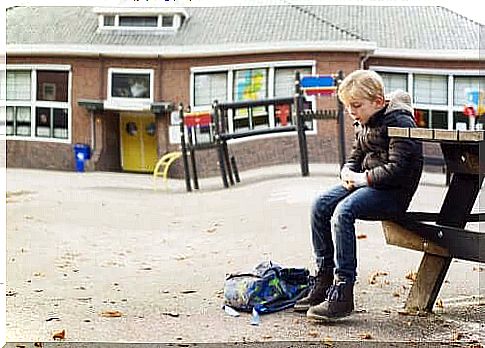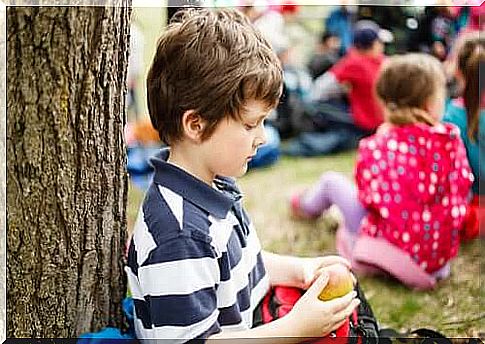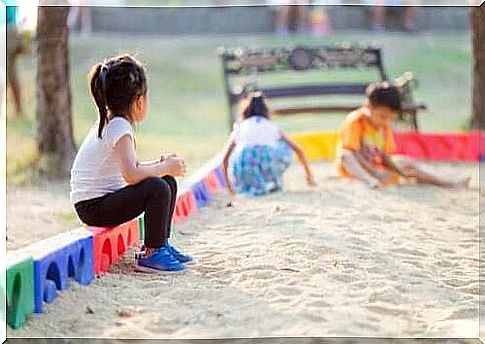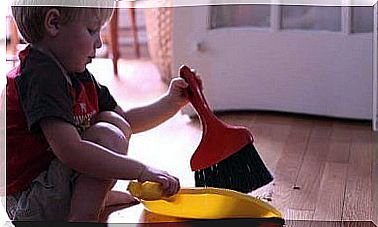If Your Child Has Trouble Making Friends

Friendships are very important in every phase of life. If your children lead healthy and active social lives from a young age, it will have a very positive effect on their self-esteem. So if your child is having trouble making friends, be sure to read our article today.
It is very important that your children understand the importance and importance of friendships. The basic requirements for a healthy friendship are as follows:
- Mutual affection
- Mutual support and reciprocity. It is important to know that the other person has the same or similar feelings as you do. It is also good to feel that friendship is unconditional.
- Trust and honesty. When you can tell your boyfriend or girlfriend about all your worries and needs and know that he or she will not judge you for them. In addition, in a real friendship, you have enough trust to honestly express your opinion.
- Mutual and sincere interest in one another. This improves communication, you can enjoy the time spent together and you will learn more about each other.
The first step in helping your child make friends is to find out why they are having trouble making friends. In today’s article, we’re going to give you a few possible reasons for this.

Some reasons your child may have trouble making friends
Maturity
The ability to make friends improves as the children get older. Usually this happens around the age of four or five. However, development can vary from child to child. There are also other factors that can influence it.
Personality Traits: One of the possible reasons your child is having trouble making friends
Introverted children often tend to distance themselves from other people. They can also feel overwhelmed by noise and large groups. Shy children, on the other hand (or children with low self-esteem) are often insecure and wait for someone else to take the initiative. As a result, these children find it difficult to express their needs and actively approach other people.
Behavior problems
When children behave aggressively, wildly, and unpredictably, they also often have trouble making friends. The other children may feel uncomfortable around them and will not want to play with these children.
Physical problems (speaking, hearing, agility, etc.)
Physical problems and limitations can make communicating with other children difficult. In addition, children often do not understand that your child has a physical limitation.
They just perceive the child as different and don’t know how to deal with it. As a result, these children are often marginalized or ignored. This leads to the fact that your child does not feel understood and also withdraws. This makes it even harder to make friends.
Hyperactivity or attention deficit
Hyperactive children are very stressful and disruptive to many people. In addition, their behavior may make other children feel that they are not interested in them at all. As a result, these children often feel rejected by their peers and many adults.
Gifted children
If children have above-average cognitive abilities, they often feel under-challenged and uncomfortable in the company of their peers. As a result, they often find it difficult to find friends of the same age who share their interests. This then leads to them feeling misplaced, misunderstood or rejected.
Children who are bullied
When children are bullied, it often leads to low self-esteem. Therefore, it is very difficult for them to trust others. And that in turn leads to them not approaching new children because they are afraid of being bullied again.
How can you help your child if they are having trouble making friends?
Children learn from their parents how to socialize and appreciate the value of friendships. You are the best role model for your children. Therefore, you should always listen to them to understand their needs and feelings. In addition, you will also learn how they behave when dealing with other children.
If your kids are having trouble making friends, here are some suggestions to help them out:
- Tell your children how to make your own friendships. They will be able to learn their own social skills based on your experiences. In addition, you should make sure that there are children of the same age in your environment with whom your children can play.

- Explain to your child the importance of friendship. In addition, you should also make it clear to him that not everyone is a good friend and that they could also be disappointed. It’s also important for your children to understand that not all friendships last a lifetime, even though there are friends they will have all their lives. Ultimately, it all depends on your personal circumstances and also on the types of friendships you will make.
- Ask your children which children they know and how they relate to these children. It is very important that you make your children feel that you really care about what they think of others and how they feel around their peers. This way they learn how to communicate with other people in a pleasant and empathic way.
What else can you do?
- Find out what interests your children have. Are there any extra-curricular activities you would like to do? Then you should allow them the company of other children who have the same interests. This will make your children feel like part of a group and will make it easier for them to make friends.
- In addition, you should help your children solve problems they have in their relationships. However, you should not interfere immediately, but only when there is really no other option. It is much better if you teach them how to solve their problems on their own. This way, their self-esteem improves and they feel more independent.
- If your child is a victim of bullying, you should inform the school immediately and take the necessary measures to protect your child.









